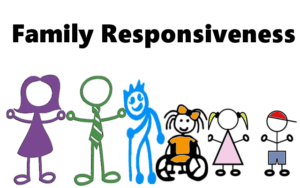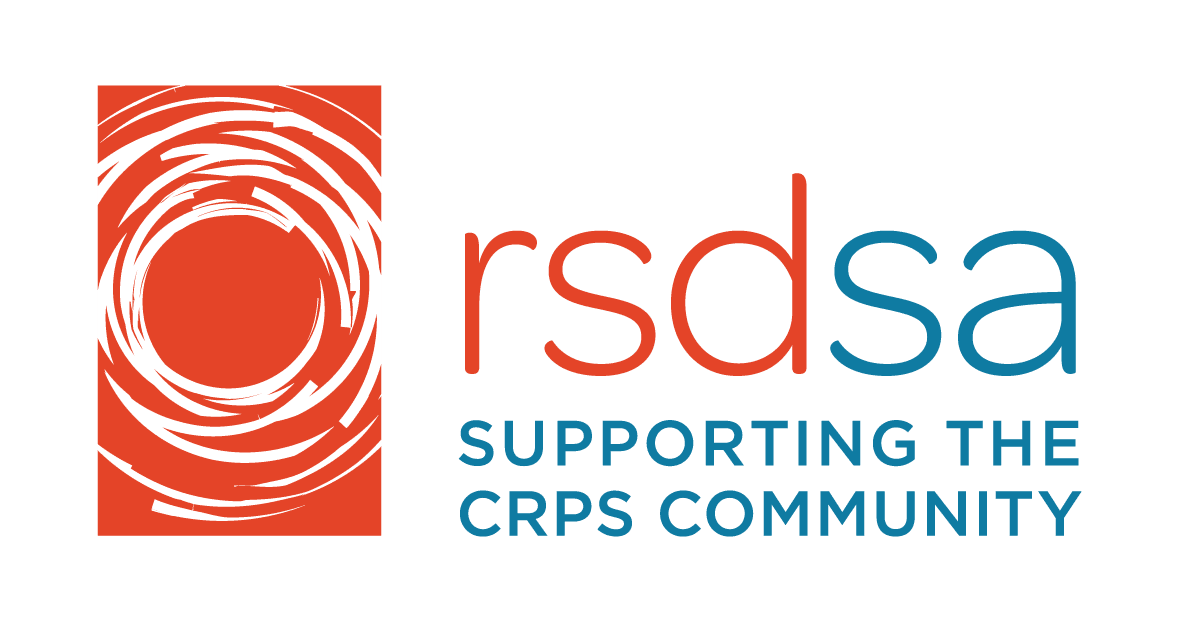 Written by Laura Lustig, PhD for the RSDSA blog.
Written by Laura Lustig, PhD for the RSDSA blog.
Originally Titled: “Chronic Pain And Family Responsiveness: Stories Of Courage In The Face Of Unimagined Change.”
There are many types of chronic pain experienced by people all over the world, many of which have been well recognized and have treatment regimens that are prescribed regularly by doctors and allied professionals. To categorize the pain of Reflex Sympathetic Dystrophy (alternately referred to as Complex Regional Pain Syndrome) as chronic pain is almost a disservice.
To begin with, people suffering from this syndrome go through indescribable pain that can strike without warning and become unmanageable. Then, there is the agony of waiting for someone to diagnose it correctly because, unlike so many other types of chronic pain, it is not commonly recognized until it grows in intensity. Even then, it is still not well understood.
All of this as preamble is known to those of you out there who are experiencing the pain, and to your families who are suffering the mental anguish of going from pillar-to-post trying to alleviate your family member’s pain. My hope is that in reading my thoughts and suggestions, you will respond and tell your stories, your actions toward relief and your questions, through me to others like you and thus become a support team for each other. Your stories should not be silent and unnoticed; they should reach the ears of medical professionals and researchers.
But to any who have not experienced personally the anguish described above, those of you who are friends, relatives, neighbors, or associates of these families- my hope is that this article will better acquaint you with what they are going through in the hopes you find incentive for assisting them in whatever ways you can offer. Even the common family duties of everyday life are disturbed by the disabling effects of this syndrome.
The Role of Caregivers: The term “caregiver” has a multitude of meanings. It can range from a service provider taking care of a disabled person, to a parent, a spouse, a sibling, a son or daughter, or other relative taking care of the individual affected with CRPS. Each of these roles are different by the nature of the category and each can vary within the same category for individual families. It has life-changing consequences. Complicating things even more, many members of the same family not in a caretaking role may have their lives changed because of their relationships within the family.
So, how does one describe the duties of a caregiver in these situations? The best I can come up with is to compare them to the normative roles of individual family members and the variations that may occur in those roles.
For example, a mother and father of a fortunate child who is healthy of mind and body are expected to nurture and train their child for increasingly independent life as he/she grows. Along the way, their needs as spouses and individuals can be attended to with increasing confidence that they will, one day, launch Junior and move onto, or continue, their own interests and relationship needs. This paradigm cannot help but be hindered when a child has more dependency and critical care needs. The question is: can a parent of this child eventually reach normative life functions? Can the child eventually find ways of becoming independent? There is no general or right answer to this question. Each family has to find their own way through the morass they encounter. It is all too common to deal with day-to-day issues and let time go by without thinking further about the future until it is upon you. But what is important is the recognition that your roles have been modified so that better planning can occur.
At this point, I would like to further identify myself and the role I took as a caregiver in my own family, because I faced a similar question as I raised my physically and mentally challenged son. I went day-by-day, doing everything I could for him: researching his condition, talking to doctors, going to clinics in the hope of finding diverse professionals who might lend their composite expertise for the medical, psychological, social and educational needs of my son. I think that in the back of my mind, not fully consciously thought out, I was looking toward a future in which he could be successfully launched toward a life of his own, and not remain in my caregiving role for the rest of my life. I have other children, and I always wonder if I gave each of them enough attention, not to mention my husband. Eventually, I was fortunate enough for my son to be moved to a life of his own, certainly not an independent one – he will never achieve that – but, at least a life in which he has contentment, work, and home life that approaches the normative environment I wanted for him.
I went through agony, crises, family troubles, and roadblocks within the social and educational environment that may, in some ways, be similar to what many of you are going through. At some point, I found myself asking who I was before and what I became after my experiences with my son Jesse. I wonder how many of you have thought about that. If anyone wishes to learn more about my story, my book “Attics of the Mind: The Story of Mother and Her Special Son,” is available online or at Amazon.com. I was fortunate, also, to have 2 older children who love their brother and have taken courageous roles in helping him. Their story is also available online. But, I could not have done it alone, which is why I emphasize the importance to each of you of reaching each other and some helping professionals along the way. Your solutions are not only medical; they are psychological, social, educational, and ongoing. There is always one more thing to do, I found, and you may also.
But what of the role taken by a spouse? One hesitates to call this a caretaker role, though it may end up that way. In the so-called normative environment, one marries with the idea that there will be love, family, a division of tasks in the everyday life, a companion to share the good times and bad times. The readjustment becomes obvious when one spouse is hit with CRPS. How much adjustment is dependent on the state of the illness, and more than this, the understandings between the spouses of their responsibilities to each other. This is an even more difficult readjustment than one borne out of a natural caregiving responsibility of parent to child. In each case, the spouses will face a complete change in roles. Yet here again, the backdrop of attempts on the part of both spouses to approximate as normal an environment as possible is most likely to result in more harmony between them.
In some cases, it is a sibling who may find him or herself in the role of caregiver? Here, a whole life may be unintentionally upended. He or she may have the least expectation of anything in the natural course of events to prepare for this new role. It leaves many more questions than answers. For example, where does a new companion fit in; what of the expectations for career building and family development? How much does one continue moving in these directions when the needs of the CRPS brother or sister is suffering? If there are several siblings involved, the complications can cause rifts between them. Who takes the major role; is it divided equally; are there explanations one or more siblings give for taking a lesser role? Again, no easy answers.
I haven’t mentioned the reverse order of child to parent. In the ordinary course of events, children are expected to take some responsibility for providing a basis of helping their aging parent who may become ill. There are many agencies and living arrangements which can be found to provide care for the aged, but not so many for the parent who may not be elderly but who is suffering from CRPS. This condition may exhaust or go beyond the abilities of nursing care to know what to do or to provide the amount of care needed.
So, in all of these cases, what does it mean to do a good job. A caregiver can be thrown off his or her balance when confronted with the extraordinary problems involved. Even the best of care may seem insufficient – with attendant guilt feelings, loss of confidence, and eventually, despair.
In all of these cases, it is vitally important that people in the caregiver role find other supportive help. Talking to a therapist and other professionals, intimate friends and medical people can help create better balanced judgment and relief. It is vitally important that caregivers not become stressed out to the point that their own health is affected.
I know I have raised many more questions than answers. But, I feel confident that in each family there are strengths that can be found and resources to use. Each of you out there has your own story. Many of you can help with the solutions you have found, the resources you know of, and the empathy you can lend to each other. Together much can be accomplished; alone the troubles you face can feel impenetrable.
If you would like to share your story or have any suggestions for others involved with caregiving, please email RSDSA at [email protected]
